#talent shops
Explore tagged Tumblr posts
Text

Well I had to draw it I feel like there's more coming around this topic idk what's wrong with me
He's so dedicated tho ♥
#art#sketch#wip never to be finished#artists on tumblr#atla#avatar the last airbender#avatar: the last airbender#atla fanart#zuko#prince zuko#lee from the tea shop#ba sing se#blue spirit#plushie blue spirit#zuko the plush maker#he's working so hard#I'm now realising I forgot to add in the appa flyer#can't bother to open the file tho#you should put those talents to better use zuko#myart
840 notes
·
View notes
Text

Awaiting a vox solo villain song
#vox#hazbin hotel#hazbin hotel vox#hazbin hotel fanart#hazbin vox#his ass better have a good fun villain song#I keep listening to Christian borle for the past weeks and I really REALLY have high hopes for it#man’s talented#don’t say yes until I finish talking is so vox coded like kill me man#art#watched little shop of horrors recently too#will watch some like it hot next mayb#anyways cheers#took too long to finish this lol
206 notes
·
View notes
Text
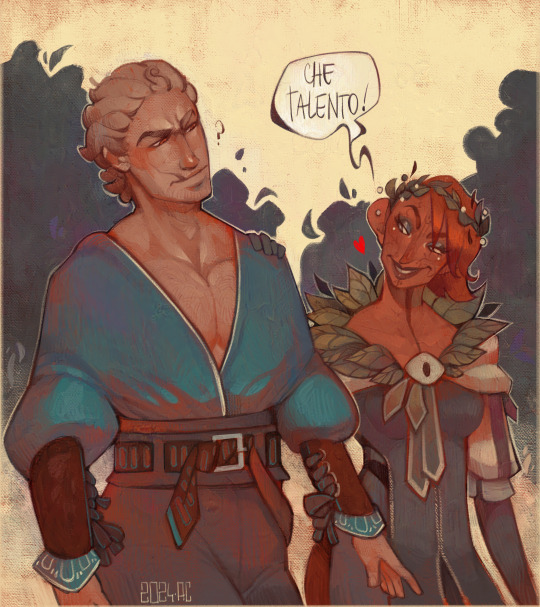
Good job, sir! A really good job u-u
his brain in a gif:
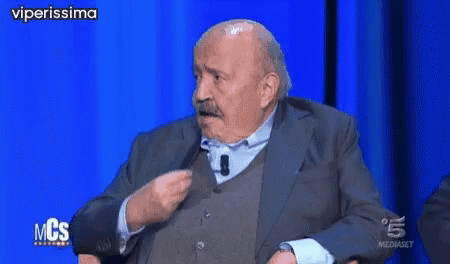
#dragon age#inquisitor lavellan#ankh#cullen rutherford#cullavellan#primula#ndo sta l'art tag#he's very talented#he's versed#multitasking even#she knows he has more to offer but yeah#window shopping is not a crime
182 notes
·
View notes
Text

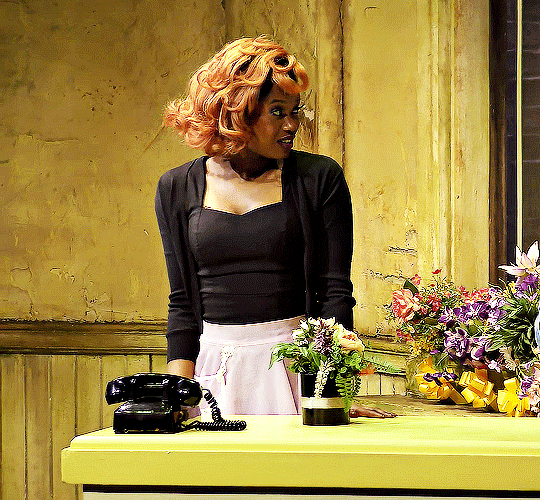

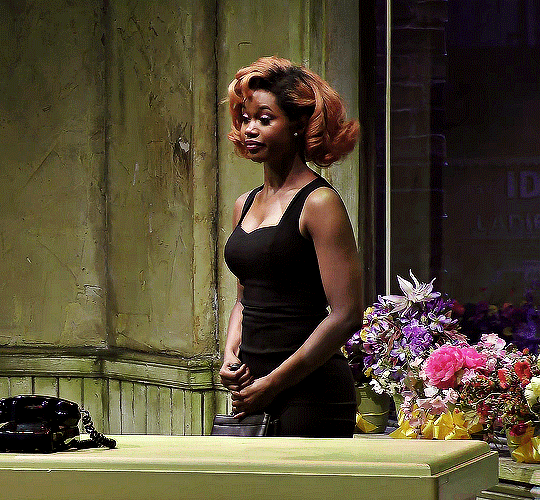

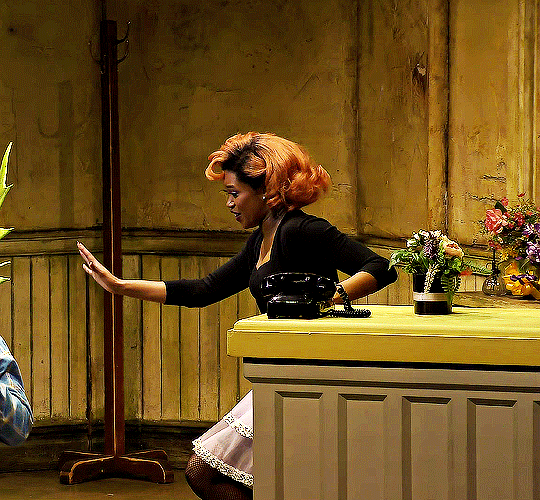

JOY WOODS as AUDREY LITTLE SHOP OF HORRORS
#little shop of horrors#joy woods#broadwayedit#theatreedit#musicaltheatreedit#lsohedit#lsoh#musicaledit#musicalgifs#*#i don't know a more talented individual
491 notes
·
View notes
Text
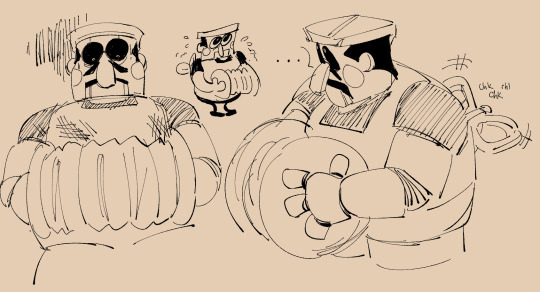
beepbeep
#arts#mine#peshino#SORRY gonna spam a bunch of doodles i never posted#i love the little tiny peshino sm.............#hes not supposed to be scary hes like#worn down a bit#like the little mouthplate hasnt been cleaned up for awhile so its got the paint scuff marks#he is so big but so full of love#and talent#peppino has the tiny peshino in his house and noisettes shop from time to time#but the big peshino wanders between his and noisettes shop#big man CANNOT be contained..... so it is good that he just wants to play music all the time heehee
485 notes
·
View notes
Text

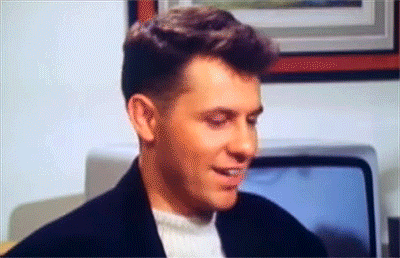
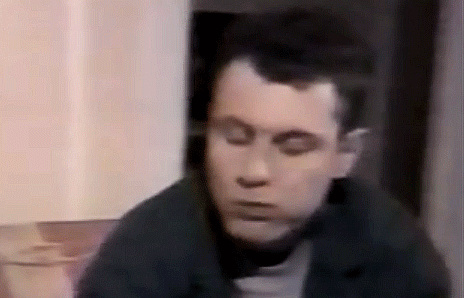
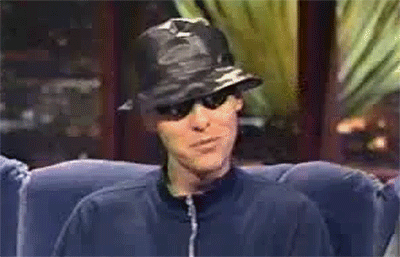

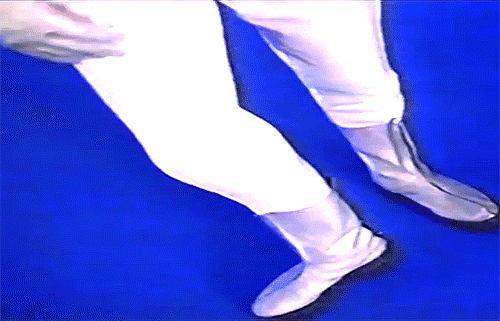
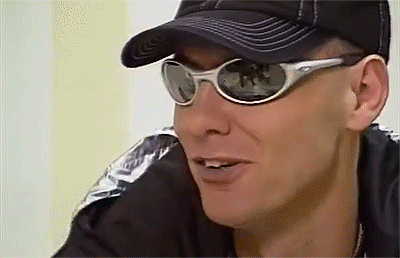
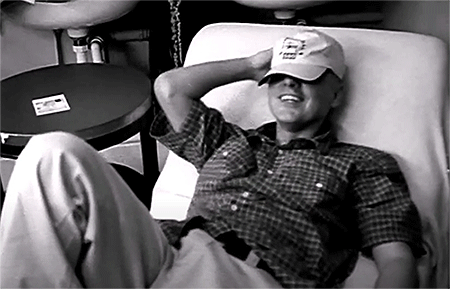
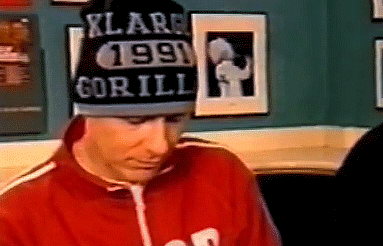
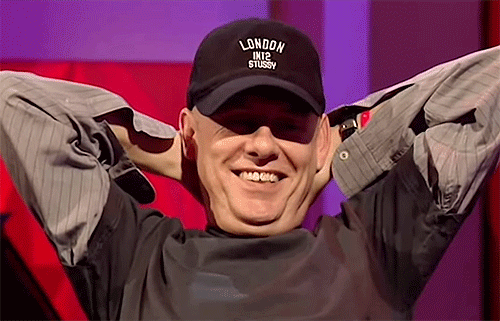
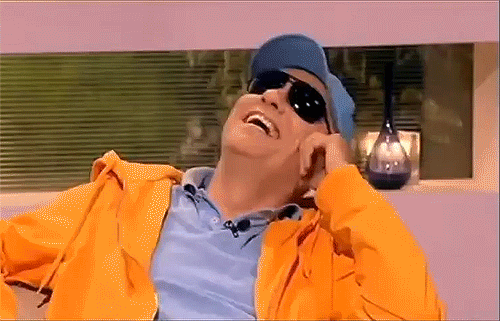
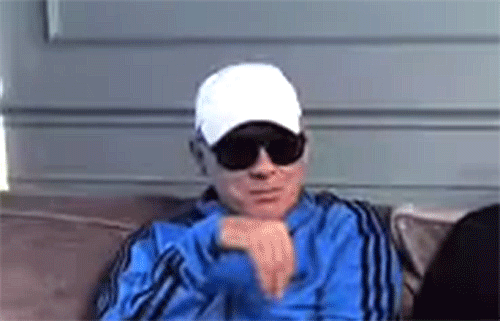



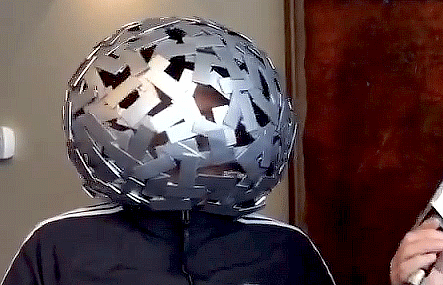
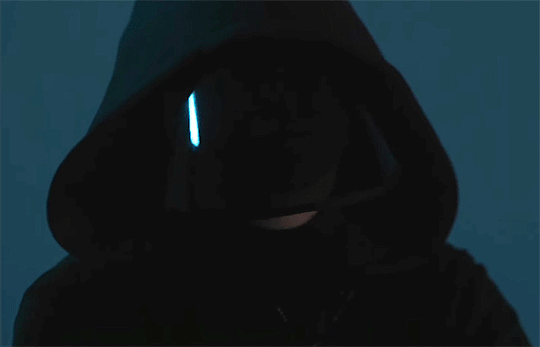



Happy birthday to the reason I became a Pethead in the first place. There aren't enough words to express everything you mean to me, so I won't even try. But you've changed my life in ways I never thought possible. Thank you for being unapologetically yourself, and most of all, for being the driving force behind Pet Shop Boys.
“Writing new stuff and doing new projects and everything is really what I live for.”
#pet shop boys#psb#chris lowe#pethead#gifset#edit#synthpop#i cried twice while making this gifset bc i love this man so much#when i came out as trans almost nine years ago i was so confused and wanted to give up bc it seemed like life wasn't going to get easier#psb came into my life at the perfect time literally saving me and this man is the reason why#since then i've learned so much from him and if i feel comfortable in my own skin is because i saw him being himself since day one#he doesn't try to be someone he's not and he's always making a path for himself while living to the fullest#i could talk about why i love him all day fr and everyone that knows me personally can vouch for that but this is enough for today#we don't deserve chris but i'm glad that the universe was kind enough to lend him to us and to let us enjoy his talent and light#i just really really love him
61 notes
·
View notes
Text
A crossover with electric dreams and little shop of horrors would probably be the funniest thing to see
#edgar electric dreams#electric dreams 1984#electric dreams#little shop of horrors#feed me seymour#80s movies#musicals#im not talented for that shit lmao
31 notes
·
View notes
Text
changbin struggling to unfold a piece of paper 😭
#im so obsessed with him#incredibly emotionally intelligent talented funny guy who also hadnt ever gone grocery shopping til this year#and can barely peel a sticker or unfold paper 😂😭
20 notes
·
View notes
Text

Got my sticker order from @aisalynn and it is STUNNING as always. I'm buying new tea tins just so I can decorate them with these 😍
Grab the Poolverine sticker here!
and the other stickers on her Etsy:
20 notes
·
View notes
Text
Got some purchases from Etsy and they're gorgeous! I got Merlin and Arthur mugs and candles the candles smell so good! And also a beautiful detailed map of Camelot and all the locations in Merlin it's like the Merlin Middle Earth I'm sobbing it's so beautiful 😭😭😭💙🦋 Highly recommend this seller they're Cultzilla on Etsy do check them out :)
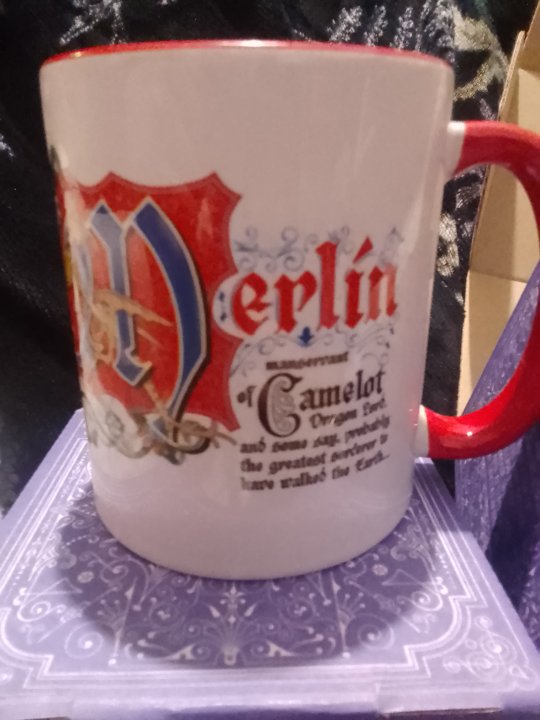
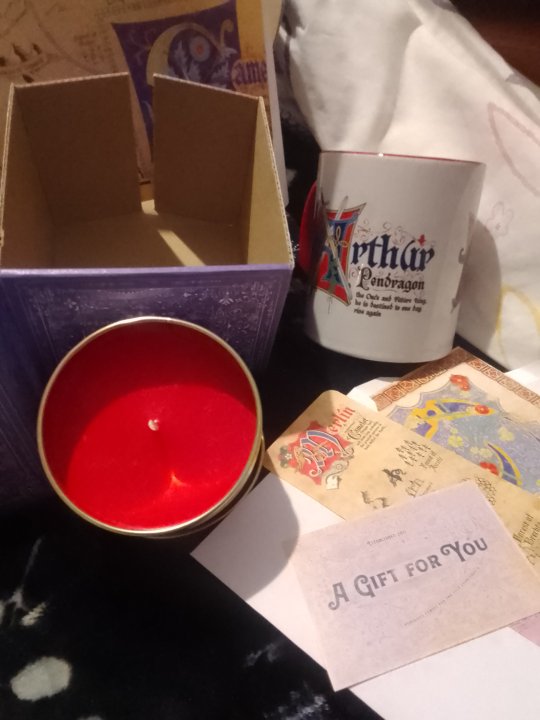
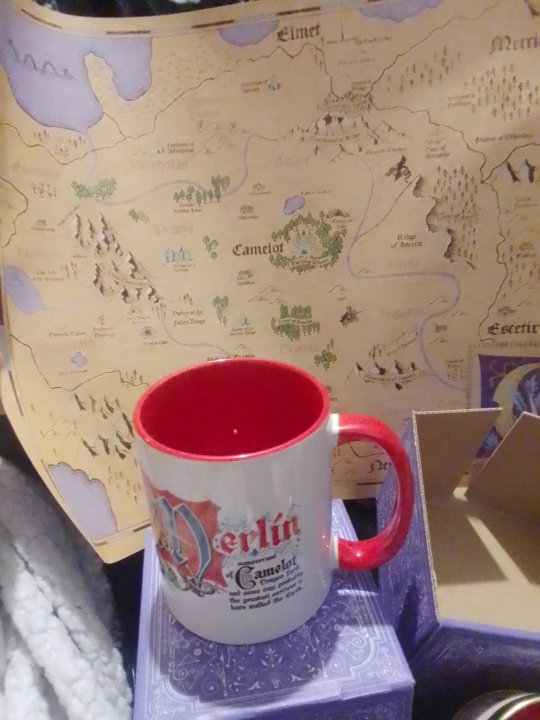
#merlin#merthur#Camelot#Im overwhelmed they're so beautiful#also getting a picture drawn of Merlin bu a different etsy shop#shes a super talented artist
38 notes
·
View notes
Text

I got my package from @azfellschild !!! Thank you so much, name twin! They’re even more beautiful than I had imagined!
They are getting framed and going right up over my writing space 💞
#good omens fanart#ineffable husbands#this work is so beautiful I can’t wait to put it on my walls#the hints of gold are a delight#aziraphale#crowley#this artist is so talented check out their shop
50 notes
·
View notes
Text

ART THREAD
I have had the very great pleasure of commissioning some beautiful art to celebrate the release of my new novel Nine-Tenths. I'm going to share them all in this thread (and hopefully add to it if I'm lucky enough to be graced with more) so you can appreciate the talent of these incredible artists.

by Christopher Winkelaar
Nine-Tenths is set in a world where all the nobility in Europe are homo draconis - shape-shifting dragons who have the ability to take human form. Every culture in the world have dragons living among the humans, but the European and Asian nations are the only ones where dragons were historically elevated to the roles of monarchs, nobles, and emperors.
In a world where the American Colonies rejected British rule, this meant they were also rejecting draconic protection--and so while they won their Independence in 1793, they were soundly trounced in the War of 1812, losing all of New England, including New York State, to the British. They were absorbed into the Canadas, except for New York City, which was reclaimed by the Dutch and re-renamed New Amsterdam.
The Canadian colonies expanded west, as they historically did in our world, through a series of broken treaties with the Indigenous peoples of the continent, and the reprehensible colonialist practices which put the settlers in power today. It also means they were able to expand further south, without the Americans to bump up against.
This also meant that the Americans were unable to expand as far south and west as in our world, coming up against Indigenous dragon-protected lands, such as the Oniagara, or Aztec and Incan empires, which grew further north after Spanish contact, and flourished.
Unlike in the current version of Canada, the land was legislatively divided into much smaller provinces than currently exist, each overseen by a hereditary draconic Lieutenant Governor, who report to the draconic Governor of the Canadas, who in turn reports to the House of Lords in England (also dragons). Each province is divided into Duchies, Earldoms, and Marquessates, presided over by a noble dragon family.
As dragons are long-lived, the current Queen of England is Elizabeth (the first one). As she has not yet passed, the Kingdom of Scotland as yet remains separate from England. Ireland too is independent, the Irish dragons having beaten back the English ones. However, Wales remains a satellite colony of England, as the betrayal which brought about it's subjugation and the trickery around the hereditary title "Prince of Wales" still occurred. (This an important plot point).

by @seancefemme
This is the first piece of art I commissioned for the novel, and you'll note it's now become the cover art!
Meet the heroes of our tale: barista and disaster bi Colin Levesque, stuck in the middle of his quarter-life crisis and crushing on his cafe regular, Welsh dragon Dav, the Marquis of Niagara (though of course, Colin doesn't know he's the Marquis, and thinks Dav is just some minor noble with nothing better to do all day than hang out and read).

by @ibrithir-was-here
Colin works at Beanevolence, an indie cafe in downtown St. Catharine's, in the province of Upper Canada (Southern Ontario in our world). It's owned by his bestie Hadi, and he was only supposed to be a barista until he'd graduated. But now he has his Sustainable Tourism degree, and no clue what to do next. He feels completely stuck. Luckily he has Dav to distract him.
Except that one day Dav distracts him too well, which results in a kitchen fire. As an apology for the inferno, and to help the cafe get back on it's feet while the repairs are under way, Dav volunteers as the new bean roaster, creating incredible and (and ultimately social-media viral) coffee roasts with his fire-breath.

by @ibrithir-was-here
Colin and Dav start a flirtation at work.
Which leads to...
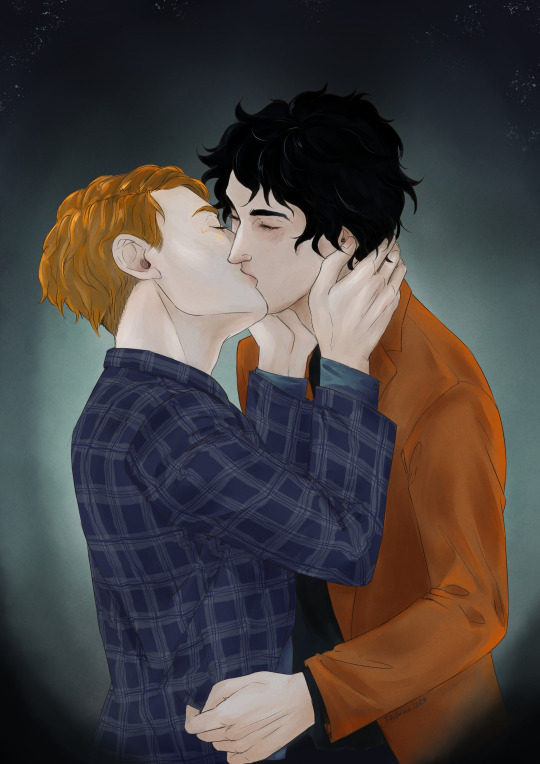
by @teejaystumbles
Luxurious dates and late-night smoochies.
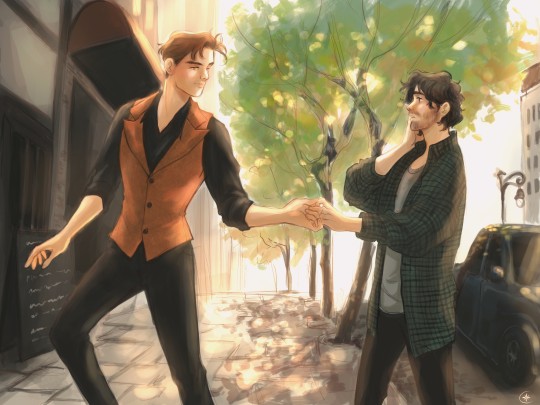
by @pinkpiggy93
Which also goes a little bit viral. See, it turns out that the Marquis of Niagara usually keeps a low profile, and his sudden romance with a human has the gossip rags and tabloids all in a tizzy.
But more than that, it puts Dav under the scrutiny of Francis Simcoe. He's the Lieutenant Governor of Upper Canada, a dragon with a hate-on for Dav, and the perfect ammunition to ruin his happiness.
Because, you see, it's against dragonic rules for dragons to be seen to be laboring in service of humans... and Dav's new gig at Beanevolence is about to--forgive the pun--land him in hot water.
➡️ Read Nine-Tenths Here ⬅️
#nine-tenths#art thread#my talented mutuals#worldbuilding#fantasy world#alternate history#alternate universe#coffee shop romance#j.m. frey#fantasy#romantasy#modern fantasy#contemporary fantasy#contemporary romantasy#dragon#dragon romance#dragon shifter#mm romance#mxm#wattpad#friends to lovers#writing#booktok#wattpad romance#queer romance#other people's art#lgbtqa+ books#queer books#queer romance books#romcom
59 notes
·
View notes
Note
new casey podcast have you seen it
https://m.youtube.com/watch?si=ye8wNfrvaPDjtpDV&v=IuwZN6aP8sg&feature=youtu.be
(link to the podcast) yeah I did, cheers!
there's not that much 'new information' per se within this podcast, though there's a bunch of nice tidbits about teenage casey. what stood out to me is how the framing of his journey to becoming a racer is... well, it's kinda new? it's not exactly surprising, because you could get a lot of this stuff from reading between the lines in his autobiography. the question of 'is this your dream or your parents' dream' is a very common one with athletes, and it's often a thin line... but, y'know, this podcast interview in particular is quite a noticeable shift in how casey himself talks about this issue. it's a shift in how he portrays his 'dream' of becoming a professional rider back when he was formulating his autobiography, versus how he's answering questions in this episode. his autobiography isn't free from criticism of his parents - but casey is always stressing his own desire to race. so you do get stuff like this (from the autobiography):
At this point things were getting serious. Dad used to say, 'If you want to become World Champion you can't be that much better than local competition,' holding his finger and thumb an inch apart. 'You have to be this much better,' he'd say, holding his arms wide open. Dad confirms this feeling still today: 'I know it's a harsh way to look at things but that's the difference between a champion and the rest. Just look at the careers of Dani Pedrosa and Jorge Lorenzo. Dani had Alberto Puig and Jorge had his old man, both of them hard as nails. If you want to make it to the top I think it takes somebody with an unforgiving view on life to help get you there. So I said those things to Casey, particularly when we went to the UK, because to keep moving up a level he couldn't just be happy with winning a race. If he wasn't winning by a margin that represented his maximum performance then he wasn't showing people how much better he was than the rest.' There's no denying that Dani, Jorge and I became successful with that kind of upbringing and sometimes you probably do need it. As far as I'm concerned Alberto was nowhere near as tough on Dani as my dad was on me or Jorge's dad was on him. That kind of intensity and expectation puts a lot of extra pressure on a father-son relationship that isn't always healthy. We definitely had our moments and there were a few major blow-ups to come. But at the time, rightly or wrongly, it was proving to be a good system for us and I was eager to continue impressing my dad and others with my performances on the track.
(quick reminder, jorge's review of his father's style of parenting was describing him as "a kind of hitler")
but in general the emphasis is very much on how much casey enjoyed racing, on how single-minded casey was when it came to racing. he might have been isolated by his racing (again this is from the autobiography, in the context of discussing being bullied by kids in school until he got 'protection' from his dirt track friends):
School life was a whole lot better after that but I still hated it. All my real friends were from dirt-track; they were the only people I had anything in common with.
and he's talked about how other parents misinterpreted his shyness as him not actually wanting to race, which meant they were judging casey's parents as a result (autobiography):
Mum tells me that the other parents thought she and Dad were awful because I cried as I lined up on the start line. She remembers: 'I was putting his gloves on his hands and pushing his helmet over his head. The thing was, I knew Casey wasn't crying because he didn't want to ride or because he was scared. He just didn't like the attention of being stared at by all these people!'
but like. overall racing for him was still something he portrayed as a very positive aspect of his childhood. something he always clung onto, something that was his choice to pursue
so... let's play compare and contrast with some specific passages of the autobiography and this podcast, you decide for yourself. take this from his autobiography:
After I started winning more times than not, and it was obvious my passion for bikes wasn't wavering, Mum and Dad decided that seeking out sponsors could be a great idea to help offset some of the costs of travelling to meets and keeping the bikes in good order.
and here, in a longer excerpt about what a sickly child casey was, what his mother said (autobiography):
'They tested him for cystic fibrosis and he was on all kinds of medication; you name it, he was on it. But Casey still raced, we couldn't stop him.' I know I was sick but Mum was right, I wasn't going to let that stop me.
versus this from the podcast, when he's responding to a completely open question about how he got into riding:
To be honest, I don't know if I was allowed to have any other attraction to be honest. I think it was, you know, you're going to be a bike rider from when I was a very very young age - and I'm not the only one to think that. I think my parents have stated that enough times to certain people and you know I was sort of pushed in that direction. My elder sister who's six and a half years older than me, she actually raced a little bit of dirt bikes and dirt track before I was born and when I was very young, so it was sort of a natural progression to go and do a little bit more of that and I think because at the time road racing was a lot more similar to dirt track. That was our sort of way in.
this was one of the very first questions in the interview, it basically just consisted of asking casey how he got into biking in the first place - whether it had come through his family or whatever. casey chose to take the response in that direction... it's not an answer that is just about his own internal passion, how he loved riding the second he touched a bike, how he loved it throughout his childhood etc etc (which is how it's framed in the autobiography) - but instead he says he wasn't allowed to do anything else. he says that he was pushed in that direction, that his parents have openly said as much to others. that he feels vindicated in the belief he was never given another choice
let's play another round. here from the autobiography:
Mum and Dad used to stand at the side for hours on end watching me practise at different tracks. They'd sometimes clock laps with a stopwatch as I went round and round. Other parents couldn't see the point in taking it so seriously but they didn't realise it was what I wanted. I was having fun. Working out how to go faster was how I got my kicks and I couldn't stop until I had taken a tenth or two of a second off my best time on any day. If another kid came out onto the track with me I would be all over them, practising passing them in different ways and in different corners, but most of the time they avoided riding with me and I would be out there on my own, racing the clock.
and this (autobiography):
I enjoyed racing so much that even when I was at home riding on my own I would set up different track configurations to challenge myself. I'd find myself a rock here, a tree there, a gatepost over there and maybe move a branch and that would be my track.
versus here, in the podcast:
Q: And did you realise at the time that you were - not groomed, is not the word but well you were being groomed to be a professional motorcycle racer, or obviously that was your only one reference point, that was the norm. Did that just feel the norm or did you think actually this feels a bit intense or how did you feel about it? A: I think it's hard, it's not until I sort of reached my mid teens where I started to have a bit of a reality check on what I was actually doing. Before then, you know I was competitive. I'm not as competitive as people think, I'm a lot more competitive internally rather than externally versus other people. I always challenge myself to things, so all those younger years was just getting the job done that I was expected to do. I enjoyed winning, I loved it, but you know I enjoyed perfect laps, perfect races, as close as I could get to that and you know from a young age I always sort of challenged myself constantly to be better. So I didn't just win races, I tried to win them - you know, if I won races by five seconds in a [...] race I'd try and win, you know I'd try and get to double that by the end of the day if I could. So you know that always kept me sharp and it stopped me from being sort of, you know, complacent in the position I was at. And it wasn't until sort of you know 16, 17, 18 that reality kicked in. I'd had a couple years road racing in the UK and Spain, been rather successful and then you get to world championships and you know maybe an engineer that was sort of - didn't have your best interests at hear. And, you know, I nearly finished my career right there after my first year of world championships just because of the reality of how hard it was in comparison to everything else I'd experienced up to that point. And, you know, it was a real reality check for me and I think it was then that I started to - you know consider everything around me and consider how and why I got to the position that I was in and that's when the mind started to change a little bit and realise that you know I really was being groomed my whole life just to sort of be here and be put on a track and try and win. And, you know, that was my seemingly most of my existence.
in all the excerpts, he stresses how much he enjoys his perfect laps, how much he enjoys riding, how there is genuine passion there, how dedicated he is to this pursuit... but then in the podcast, he's adding something else - how he'd been groomed his whole life into that role of 'professional bike racer'. that it was only in his late teens (when he was in 125cc/250cc) where he had this moment of 'man I never really had a choice in all this'
and another round. here's him talking in the autobiography about how all the money he got through racing went back into racing - but it was fine because it was the only thing he cared about anyway:
I don't remember seeing any of the money I earned because it all went back into my racing, although I guess at the time that's all I really cared about anyway. I didn't know anything else. Mum and Dad always said to me: 'If you put in the effort, we'll put in the effort.'
and here in the autobiography on how he just wanted to ride all day:
I couldn't ride my bike all day, though, as much as I would have liked to.
and him talking in the autobiography about his parents encouraging him and his sister to 'chase their dreams':
Mum and Dad encouraged both Kelly and me to follow our passions and work hard to chase our dreams. That might sound strange when you are talking about a seven-year-old but I don't think you are never too young to know that if you want something you have to earn it.
versus this in the podcast:
Q: And I've never asked you this before, but did you want to? A: Um... I think I'd been convinced of a dream I suppose. You know, yes I loved riding bikes and you know I really did enjoy racing... but there was lots of other things that I - I really enjoyed as well but just never had the opportunity or never was allowed to do anything else, so... You know, motorbikes for our budget everything fortunately dirt track was probably the cheapest way that you could go motorbike racing. You could survive on very very little in dirt track and show your potential in other ways. You know, yes, having good bikes and good tyres and all that sort of thing made a difference but it wasn't the be all end all, you could always make a difference in other ways, so... I think it was, you know - the best thing we could have done, racing through that. Like I said I enjoyed it, it wasn't until late teens, early 20s where I sort of was like, I don't know if I would have been a bike racer had I actually had a choice.
was riding really all he cared about? or were there other things he was interested in, things he just never had the opportunity to pursue? things he wasn't allowed to pursue? from the autobiography, you get the sense that his parents always deliberately portrayed it as casey's dream, something he was expected to work hard for in order to be allowed to fulfil. in the podcast, casey says it was a dream he was 'convinced' of. without wanting to speak too much on the specifics of this parenting relationship we only have limited knowledge of, this kinda does all sound like athlete parent 101: getting it into their kids' heads that this is the dream of the child, not the parent, before holding it over them when they fail to perform when their parents have invested so so much in their child's success. casey's family was financially completely dependent on his racing results when they moved to the uk - he was fourteen at the time. he was painfully conscious of his parents' 'sacrifice' to make 'his dream' possible. can you imagine what kind of pressure that must be for a teenager?
to be clear, this isn't supposed to be a gotcha, I'm not trying to uncover contradictions between what casey said back then and what he's saying now. obviously, this is all very... thorny, complicated stuff, and casey has had to figure out for himself how he feels about it, how he feels about how his parents approached his upbringing. but it is worth pointing out that this isn't necessarily just a question of his feelings changing over time - if the internal timeline he provides in the podcast is correct, he was really having that realisation in his late teens, early 20s, so on the verge of joining the premier class. that is when he says he had the thought "I don't know if I would have been a bike racer had I actually had a choice"... which is a pretty major admission, you have to say, especially given how rough those premier class years often ended up being on him. but then that realisation would have already come years and years before he wrote his autobiography, it would've been something he carried with him for most of his career. given that, you do look at his autobiography and think that he did make the decision to frame things pretty differently back then, that he decided to exclude certain things from his narrative. if this really is already something that's been festering within him for years, if he does feel like he wants to be a bit more open about all of that now than back then... well, hopefully it shows he's been able to work through all of it a bit more in the intervening years
(this is somehow an even thornier topic than his relationship with parents, but relatedly there is a bit of a discrepancy between how bullish he is in his autobiography about how mentally unaffected he was by his results, versus how he's since opened up since then about his anxiety. again, I want to stress, this is not a gotcha, he's under no obligation to share this stuff with the world - especially given the amount of discourse during his career about his supposed 'mental weakness'. it is still important in understanding him, though, how he consciously decided to tell his own story in the autobiography and how he's somewhat changed his approach in the subsequent years)
this is the rest of his answer to that podcast question I relayed above:
But at the same time you know I felt that no matter what I would have done, I sort of have a - my mentality of self-punishment, you know, of never being good enough that always drove me to try and be better and any single thing that I did, I didn't like it when I wasn't not perfect. I don't believe in the word perfect but I really didn't enjoy when I wasn't, you know, in my own terms considered a good enough level at anything I did so I would always sort of try to get up as high as I could regardless of what for.
at which point hodgson says exactly what I was thinking and goes 'god what a line' about the "mentality of self-punishment" thing. it is one hell of a line!
what's really interesting about this podcast is how these two big themes of 'this wasn't my choice' and 'self-punishment' end up kinda being linked together when casey talks about how the motogp world reacted to him... so again I'm gonna quickly toss in a bit from the autobiography (where he's talking about casual motorcycling events he went to as a kid), because it does read similarly in how for him the joy and competitive aspects of riding are closely linked:
It was a competition but it wasn't highly competitive; it was just for fun, really. Of course, I didn't see it that way, though, and I had dirt and stones flying everywhere. I don't think anyone expected the park to be shredded like it was. When I was on my bike, if I wasn't competing to my maximum level then I wasn't having as much fun.
and back to the podcast:
And also because people truly didn't understand me, that I'm not there just to enjoy the racing. As we're explaining, before that, you know it was sort of a road paved for me... And so the results were all important, not the enjoyment of it. And then you cop the flak for everything you do. I'm also very self-punishing, so it was kind of a - just a lose lose lose and it was all very very heavy on myself, so... It, you know, it took me till my later years to realise I could take the pressure off myself a little bit and go look you've done all the work you've done everything you can, you got to be proud of what you've done, so... Not necessarily go out there and enjoy it, because I don't believe you should just be going out in a sport where you're paid as much as we are expect to get results and just - you know - oh I'm just going to go and have fun it's like... yeah, nah, if you're just going to go and have fun then you're not putting in the work. And that's when we see inconsistencies etc. So I was very very harsh on myself and so even when I won races, if I made mistakes or I wasn't happy with the way I rode, well then yeah I'm happy I won but there's work to do. There was more to get out of myself and so that's where I copped a lot of bad... um, let's say bad press because of those kind of things and then they sort of attack you even more because they didn't like the fact that you didn't celebrate these wins like they wanted you to they expect you to I suppose treat every victory like almost a championship and you know it's not that I expected these wins but I expected more of myself and therefore maybe I didn't celebrate them as much as you know other people do.
kind of brings together a lot of different things, doesn't it? this whole profession was a path that was chosen for him... which he links here to how the results were 'all important' for him, how it just couldn't ever be about enjoyment. he always punished himself for his mistakes, he was under constant pressure, which also affected how he communicated with the outside world... he was so committed to self-flagellation that he made it tough for himself to actually celebrate his victories, which in turn wasn't appreciated by the fans or the press. so on the one hand, casey's obviously still not particularly thrilled about how much of a hard time he was given over his particular approach to being a rider. but on the other hand, he's also describing how all of this can be traced back to how becoming a rider was never actually his 'choice'. he's detailed his perfectionism before, including in his autobiography, including in discussing his anxiety disorder more recently - but this is explicitly establishing that link between the pressure he'd felt during his childhood to how he'd been pushed into this direction to how he then had to perform. he couldn't afford to be anything less than perfect, so he wasn't, and at times he made his own life even tougher as a result of his own exacting standards. this just wasn't stuff he's said in such straightforward, explicit terms before... and now he is
my general thing with casey is that his reputation as a straight shooter or whatever means people aren't really paying enough attention to how he's telling his own story. like, I kinda feel the perception is 'oh he used to be more closed off because the media ragged on him but since retirement he's been able to tell it like it really is' or whatever. and I'm not saying that's necessarily wrong, but it's not quite as simple as that. because he's not a natural at dealing with the media, he's put a fair bit of thought into how to communicate better with them (which he does also say in the podcast), and he's explicitly acknowledged this is something he looked to valentino for in order to learn how to better handle. because casey has felt misunderstood for quite a long time, he's quite invested in selling his story in certain ways - and it's interesting how what he's chosen to reveal or emphasise or conceal or downplay has changed over time. which means there will be plenty of slight discrepancies that pop up over time that will be as revealing as anything he explicitly says... and it tells you something, what his own idea of what 'his story' is at any given time. this podcast isn't just interesting as a sort of, y'know, one to one, 'this is casey telling the truth' or whatever - it's reflecting where his mind is at currently, what he wants to share and in what way, and how that compares to his past outlook. the framing of his childhood was really something that popped out about this particular interview... it's not like it's exactly surprising that this is how he feels, but more that he decided to say all of this so openly. some pretty heavy stuff in there! hope the years really have helped him... man, I don't know. figure it all out, for himself. something like that
#hodgson is a far better interview than that bloody australian who keeps getting retired riders on his show#on a one man crusade against that youtube channel after the sete episode. listened to it at 1.5 speed but it was still horrendous#idk whether they screened potential q's but if not then hodgson followed up well on that initial casey response about not having a choice#icl I thought this would be a ducati puff piece but they do discuss self loathing for like half an hour#I do treat all athletes' parents with a base level of suspicion. guilty until proven innocent. don't trust any of them#ducati uk posted it on twitter right before I went grocery shopping so I was like 'oh well I'll put it on! that'll be nice!'#and it ended up kinda depressing me icl. super talented at the bike anything thing I get it but low key he should've done something else#I don't follow ducati uk on twitter... I did add them to my motogp list when I saw the podcast announcement. just to be clear#//#casey stoner#brr brr#batsplat responds#still don't entirely get what the concept for the podcast is. does he just chat to people related to ducati. I mean I liked it but#fifty minutes in they go 'yeah remember when you won a title with ducati. that was nice wasn't it'#going on the ducati podast complaining about how new tech has made racing worse like 'we're all trying to find the guy who did this'#heretic tag
21 notes
·
View notes
Text
MY FRIEND IS MAKING A VASH COAT FOR ME! I GOTTA BE DOING SMTH RIGHT TO DESERVE THIS
#and she’s tailoring it to me wtf#we went fabric shopping the other day#I have so much joy#she’s so talented#and she’s making the pattern from scratch?!?#like Vash’s coat ain’t simple girl#I love her#I do not deserve her#tbh I look goofey standing in the middle of street wearing the mock up while she’s got pins and measuring tape out#but I cannot be more thankful#lemme rant about how cool this is#trigun#vash the stampede#trigun maximum#trigun stampede#vash saverem#trimax
16 notes
·
View notes
Text
so we’re all here talking about Michael’s micro-expressions but did you look at David’s face right after he heard ‘I forgive you’ because he was blinking a few times behind the glasses and I-
#maybe Crowley left because he didn’t want Aziraphale to see his tears#is all im saying#and maybe he was wiping his face when Az was still talking to Metatron in the shop#David was fucking acting BEHIND THE GLASSES#they are both such masters of their craft#we are so blessed#to have two such amazing actors#and a writer who knows how to put their talents to good use#this scene was so powerful they didn’t even have to enhance it with camera angles and such#I’m just#imma#/sobbing#david tennant#michael sheen#dt with sauce#the sheen#good omens
36 notes
·
View notes
Photo

✨🌸Sakura and Tomoyo🌸✨
Crocheted by me, pattern from here! 🧶
#ccs#cardcaptor sakura#sakura kinomoto#tomoyo daidouji#ccs art#amigurimi#crochet#okay I'm so happy of how they turned out???? 🥺 I always wanted to have ccs dolls as a kid so this is a dream come true!!!!!#i also have kero but forgot to take a picture with him as well loool also think I'm gonna remake him!#and of course I'm also making syaoran!!! but I need to buy green yarn to make hi dress so I'm gonna have to wait 🥲#also if you crochet check out the shop I linked with the patterns! there's a lot of wonderful stuff!!! pigami is super talented!#sakura x tomoyo
148 notes
·
View notes